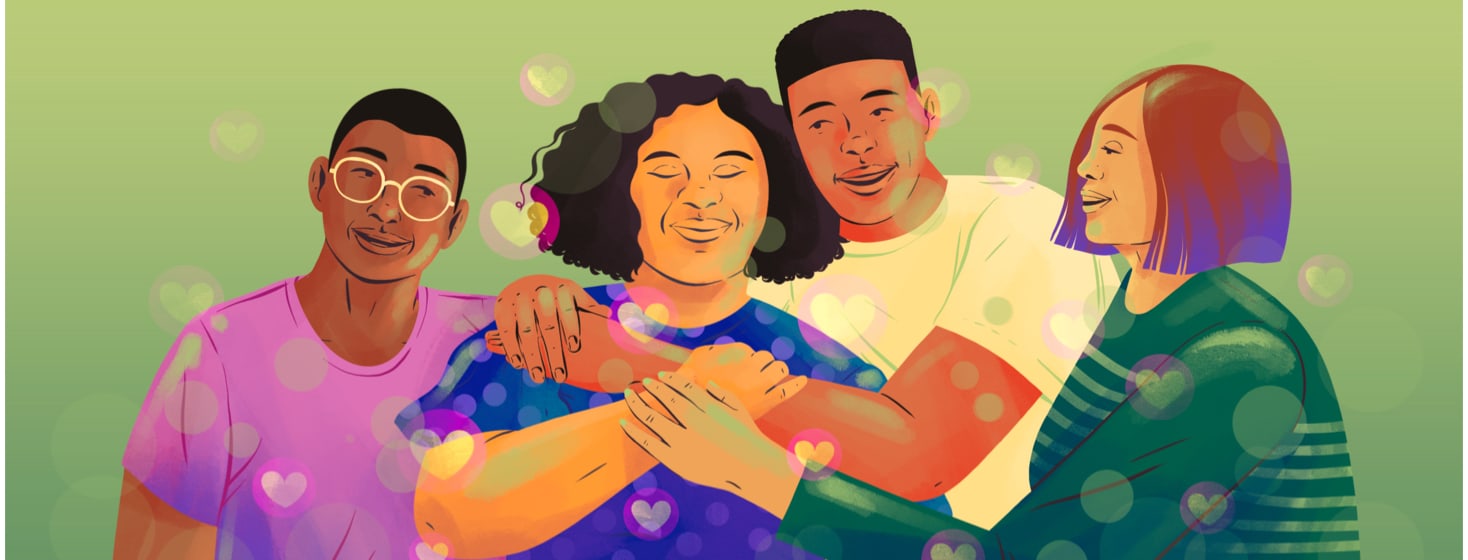What to Know About Support Groups
Support groups are a resource and outlet commonly recommended for navigating and coping with an identified life stressor such as a rare disease, a specific health condition, or even mental health. Just search on RareDisease.net for "support group" and see how many hits you get where it's been mentioned in this community alone.
The value of support groups
I'm always surprised by how many people in my everyday life aren't interested in support groups when I mention them in conversation. Reasons vary from wanting only in-person or virtual support to a misconception that support groups are just people complaining about everything that's wrong in their lives.
The beauty of support groups is that they are incredibly versatile. A support group is simply any group of individuals with similar experiences coming together in one way or another to offer support and share information with one another.
This or That
Are you part of a support group?
How support groups form
Support groups can be easily created without even realizing they've been established. These can look like online groups, such as on Facebook, or in-person gatherings. They could be informal or by phone.
If someone connects with others who have the same condition online or through mutual doctors or hospitals in the same area, perhaps they decide to meet every Tuesday at a local coffee shop. That is an informal support group.
Sometimes, doctors ask veteran patients to talk to or support someone newly diagnosed or in other special circumstances. For example, my pediatric gastrointestinal specialist asked me to do this with other children and teens to help them through what I had already experienced. If this happens enough, a formal or informal support group can be formed.
Support groups can also be formally created, organized, and facilitated through an organization such as a hospital, a related non-profit, or a health department. These may be in-person or virtual programs. For example, several kidney organizations have peer support programs available by phone for kidney patients.
A community-led example
A friend of mine collaborated with his local hospital to create a support group for hereditary colon cancer syndromes that meets monthly, and originally they met in person. During and since the COVID-19 pandemic, he has been hosting virtual meetings. These meetings are co-facilitated by my friend and a hospital representative. He established this support group by contacting a genetic counselor and his medical facility and came to an agreement on where, when, and how the support group would meet and function.
My friend and I share the same rare disease of familial adenomatous polyposis, and to increase support for his idea as well as meet the needs of other similar conditions, he broadened what would have been a very select niche to a slightly larger niche by including all hereditary colon cancer syndromes instead of just one. This may be an option for other rare diseases – to gather the necessary support and resources needed from established organizations to formally create a support group.
The value of connecting with peers
It's also helpful to locate or develop support groups that are age-specific. It seems that most support groups I come across are geared towards adults, but this unintentionally leaves out minors – not in the sense that they're not welcome to join, but people tend to relate better to their peers than to others with vast age differences.
Another consideration is that drastically different age groups of children, teens, and adults may not all feel comfortable honestly and openly discussing their concerns with different age groups. For example, sexual concerns from a health condition may not be the most appropriate topic with children in attendance and teens might not feel comfortable talking about such concerns either with adults present — I know I wouldn't have.
Creating a safe space
For a support group to function and be of the most help to its members, it must be a safe place for discussion where members can be open and honest. Groups with similar peer ages promote a sense of safety, invite openness, and encourage rapport-building amongst members.
For example, I attended my local ostomy support group as a child, but I was the only child there. While I appreciated the kindness of the adults, I only became engaged and felt the support I needed once I was a young adult. However, when I attended a summer camp for teens with bladder and bowel disorders, I felt more supported there because I was finally meeting people my own age with similar conditions and experiences.
Featured Forum
View all responsesA life-changing and life-saving experience
Whether you are part of a support group presently, were in the past, or never have been, I encourage the use of support groups in whatever way you will find most helpful and comfortable.
From my own rare disease experiences, I have found connecting with others who are going through similar experiences to not only be life-changing for me but also quite literally lifesaving through the support and information I've received to help me better navigate life with a rare disease.
I wish the same for every one of us; we all deserve that.

Join the conversation